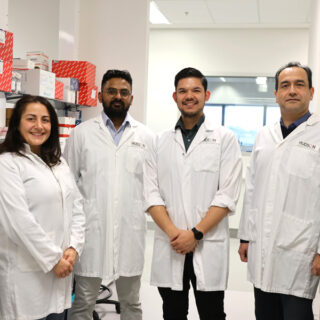Story type: Discovery
-
Next-generation degradable 3D meshes to repair POP
A debilitating condition affecting one in four women is desperately crying out for a solution, and the next generation of treatments to repair the damage of pelvic organ prolapse (POP) has just come a big step closer.… Read more

-
Genetic analysis CAPS search for a cure
A rare and debilitating group of autoinflammatory diseases is closer to a cure thanks to a world first genetic analysis project at Hudson Institute.… Read more
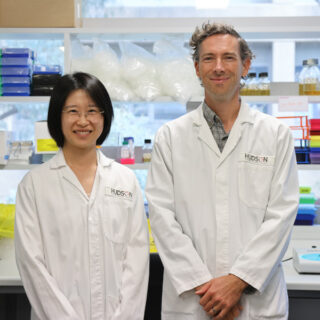
-
Too much of a good thing: fine-tuning newborn resuscitation
Latest research at Hudson found that a simple change in how oxygen therapy is given can help protect the babies brain during newborn resuscitation.… Read more
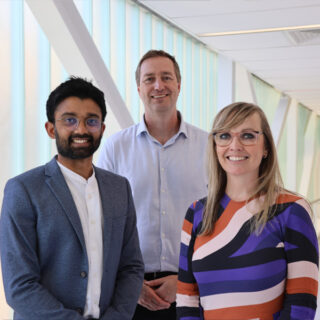
-
Stem Cells: Hope on the horizon for preterm babies
Pioneering Australian research, undertaken by a collaboration of Monash Health’s Monash Children’s Hospital, The School of Clinical Sciences at Monash University, and Hudson Institute of Medical Research, has successfully demonstrated the feasibility and safety of using a baby’s own cord blood-derived cells as a potential treatment for extremely preterm infants.… Read more
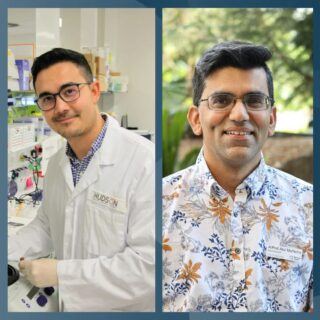
-
Uncovering the cellular secrets of RNA editing
Professor Carl Walkley heads the RNA Biology and Innate Immune Sensing Research Group at Hudson Institute of Medical Research and their latest research, published in Science Immunology, sheds new light on these crucial processes.… Read more
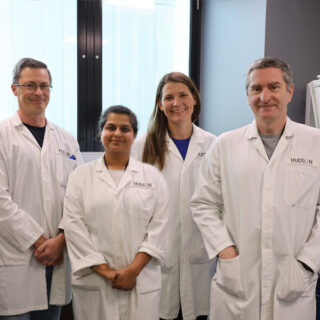
-
Harnessing a natural killer to fight lung cancer
Associate Professor Dan Gough and his team are studying how to make these cold tumours visible to the immune system and prevent them spreading to other parts of the body.… Read more
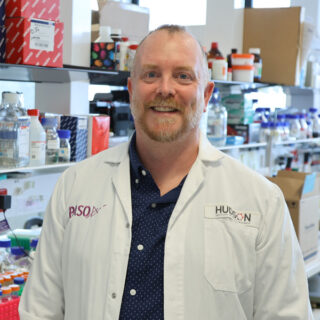
-
Childhood blood cancer: new treatment approach
Dr Catherine Carmichael aims to identify the key mechanisms that drive development of an aggressive form of childhood blood cancer, acute myeloid leukaemia (AML).… Read more
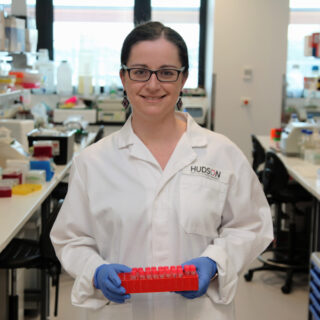
-
Early aldosterone linked to heart risk in youth
Unprecedented access to a unique group of Australians is allowing researchers to study links between raised aldosterone levels and elevated cardiovascular risk in various age groups – with important findings for heart health. This research is shedding new light on aldosterone heart risk, a critical factor in cardiovascular health.… Read more

-
Understanding the how and why of preterm brain injury
Researchers at Hudson Institute of Medical Research have now uncovered a key process that causes brain injury, offering hope that new, targeted treatments could be created.… Read more
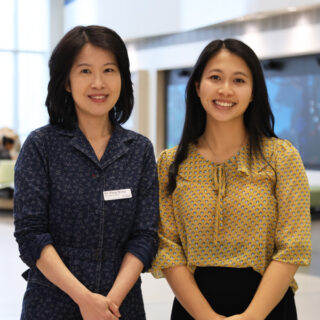
-
New treatment hope for perinatal lung and brain injury
Hudson Institute researchers are lifting the lid on a treatment promising the benefits of stem cells but none of the drawbacks, offering potential to reduce the lifelong impacts of perinatal lung and brain injuries.… Read more
